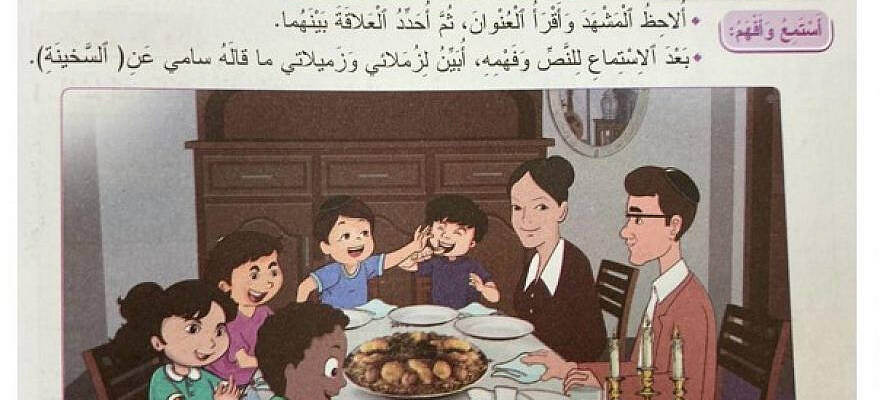Peace is taught as a key component of respectful human relations and a major foreign policy goal.
By JNS
Peace and tolerance are central themes in the Moroccan curriculum and promoted in textbooks across multiple grades and subjects, a new report finds.
“Students learn about practical conflict resolution, and Islamic scripture is used to highlight religious tolerance and peacemaking,” a summary of the document states.
The report also found that Morocco’s Jewish community is treated with sympathy and respect in textbooks. The Jewish community is represented as an “inseparable part of Morocco,” and government efforts “to preserve Jewish heritage are highlighted.”
Marcus Sheff, CEO of the Institute for Monitoring Peace and Cultural Tolerance in School Education (IMPACT-se), said: “We are struck by this unique embrace of Jews and Judaism in the reformed Moroccan school curriculum, a project of King Mohammed VI.
“The affection through which Morocco’s Jewish community and its customs are represented as well as the lives of individual Moroccan Jews is heart-warming. We are welcomed into the homes of the Jewish community through the textbooks and learn that Jews are entwined in the national and cultural fabric of Morocco,” he added.
Among the positive depictions are a Jewish boy hosting his Muslim friends for Shabbat dinner; a Jewish family hosting guests for Mimouna, a festival held by Moroccan Jews on the evening and day after Passover; a sixth-grade text introducing Bayt Dakira (“the House of Memory”), a museum for Jewish heritage located in Essaouira, a city in Morocco known until the 1960s as Mogador; and a fourth-grade Arabic textbook teaching about the importance of Jewish Moroccan music to Moroccan musical tradition.
The report evaluated 127 textbooks published by the Ministry of Education between 2013 and 2022. It was prepared by IMPACT-se, a research and policy institute that analyzes curricula around the world, in collaboration with the Jeffrey M. Talpins Foundation and its president, Oren Eisner.
Eisner said, “We would like to thank the entire team at IMPACT-se for their groundbreaking work on the Moroccan curriculum. And we of course want to thank the Kingdom of Morocco for taking steps to improve its curriculum, spread tolerance and understanding throughout the Middle East, and better prepare the next generation of Moroccans to succeed in the jobs of the future.”


